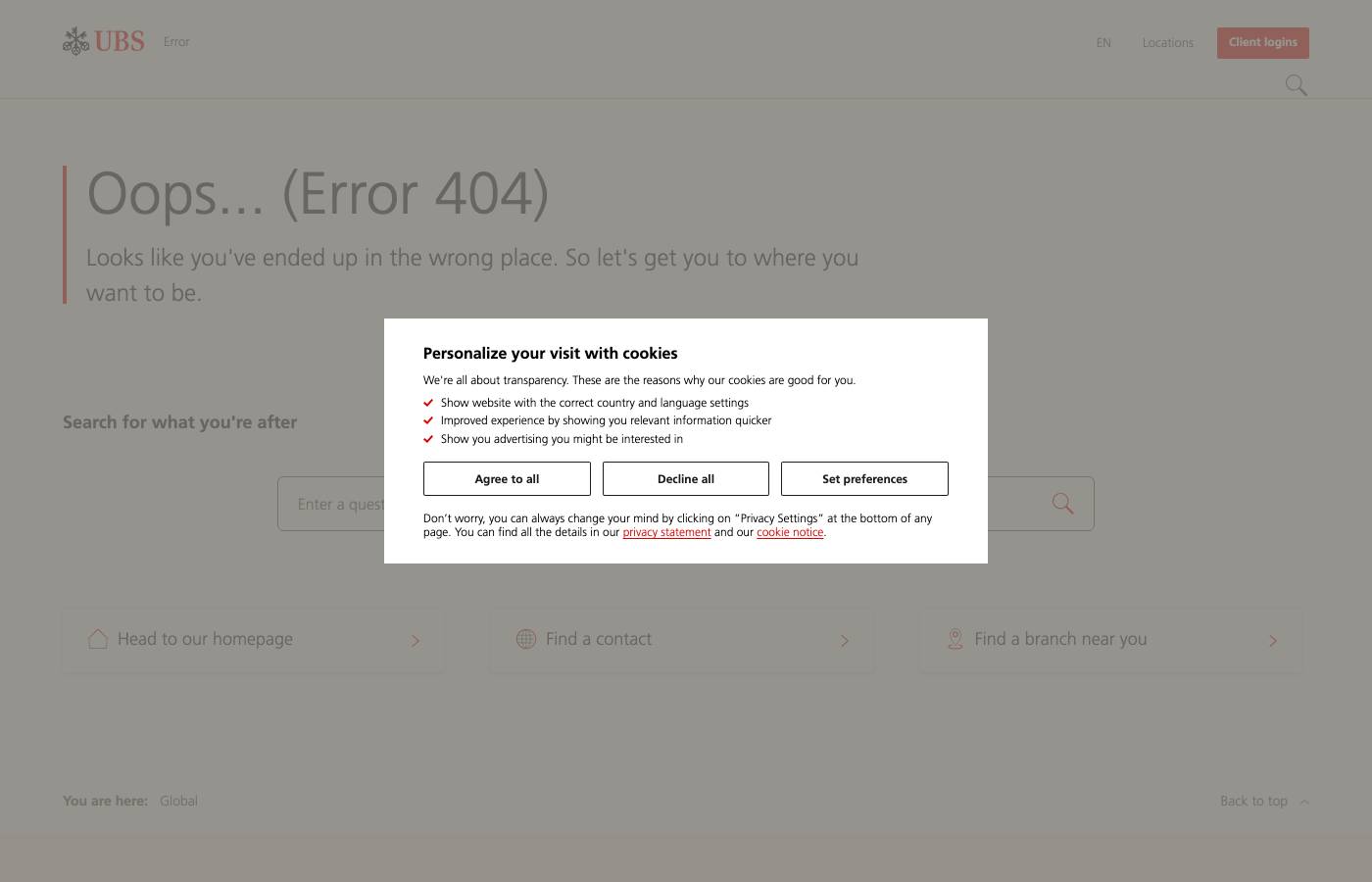Brand visibility profile
Ubs in AI search
Review AI visibility, citations, and competitors for this brand across ChatGPT, Claude, Perplexity, and Google AI Overview.

Estimated Traffic
15230
Based on monthly volumes set per question
Coverage by AI engine
Coverage
Sign in to view the full coverage heatmap and explore every prompt where this brand appears.
Do you want to track your Brand?
7 days Free trial, you can cancel anytime.
AI Citations
Perplexity
0
OpenAI
0
Claude
0
AI Overview
0
Unlock full AI analytics for this brand, including query volumes, mentions and competitor counts.
Mentions
What is wealth management services?
Best wealth management firms in new york
Top financial advisory firms for mergers and acquisitions
Top financial planning firms for high net worth
Best wealth management firms for executives
Best wealth management firms for entrepreneurs
AI Citations (Brand)
Ubs pages found in AI answers, estimated global monthly visits: 0
Unlock the exact URLs from this brand that AI assistants cite most frequently.
AI Citations from Articles and News (Top 20)
Filtered to blogs, newsrooms, resources, insights, and reports.
Log in to explore the news and blog articles most cited by AI answers.
AI Citations (Top 20)
All other external websites cited by AI answers.
Competitors
Explore similar brands
Goldman SachsMorgan StanleyMerrill LynchJPMorgan ChaseCharles SchwabFidelity InvestmentsJ.P. MorganNorthern TrustMorgan Stanley Wealth ManagementgoldmansachsGoldman Sachs Private Wealth ManagementCiti Private ClientZoe FinancialFacetAspiriantBessemer TrustVanguard Personal AdvisorRaymond JamesJ.P. Morgan Private BankMerrill Lynch Wealth ManagementBeacon Pointe AdvisorsMercer AdvisorsJPMorgan Chase & Co.Goldman Sachs Personal Financial ManagementCAPTRUSTEvercoreRothschild & CoJP Morgan Private BankVanguard GroupLPL FinancialBairdCredit SuisseNewEdge AdvisorsWilliam BlairHarness WealthCitigroup (Citi)Alvarez & MarsalCenterview PartnersJ.P. Morgan Wealth ManagementBofA Global Wealth and Investment ManagementWealthrampBank of America Merrill LynchCerity PartnersJ.P. Morgan Private Client AdvisorBain & CompanydeloitteFidelity Investment CalculatormorganstanleyKPMGBDO